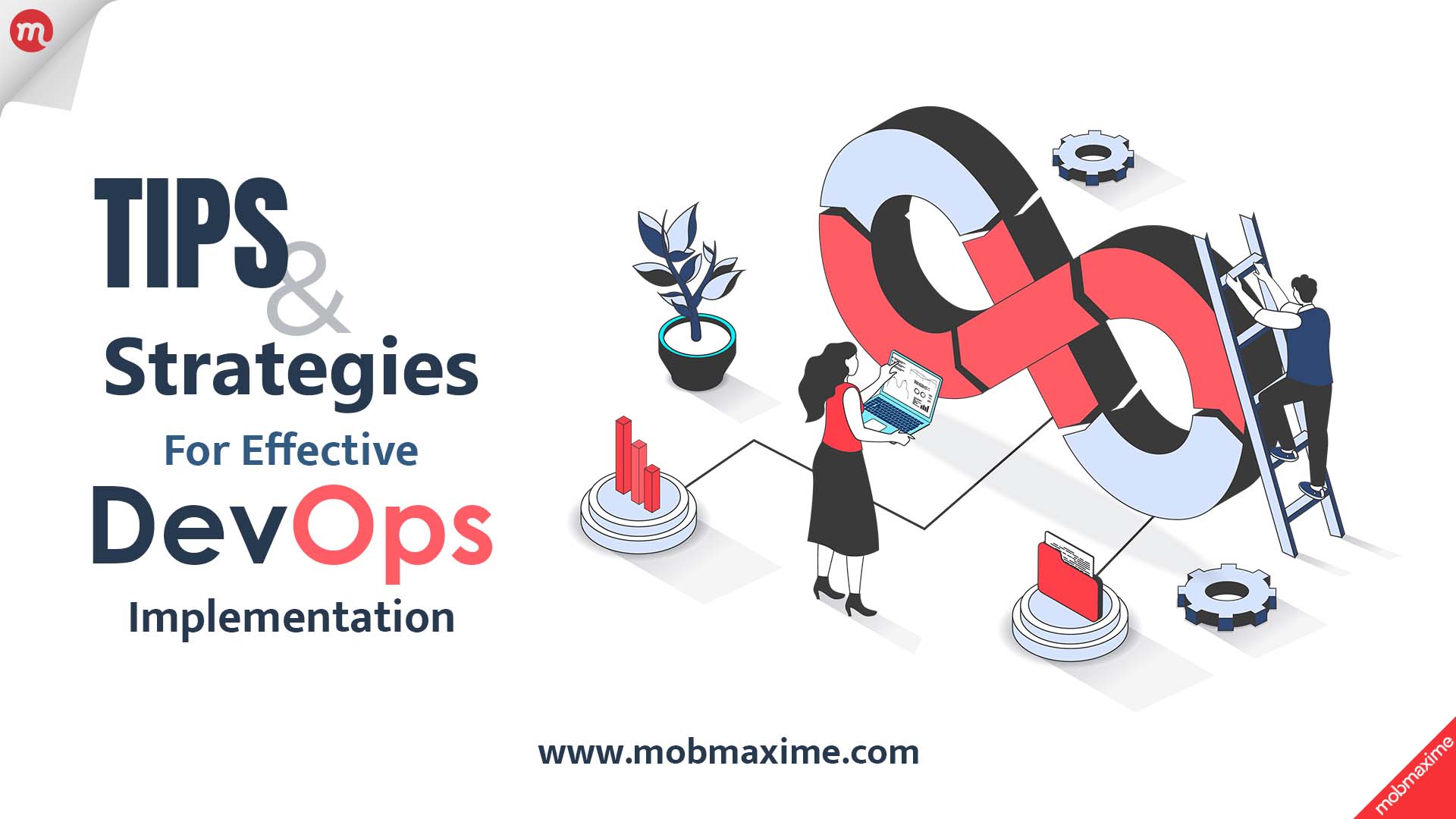Tips and Strategies for Effective DevOps Implementation

In today’s fast-paced digital world, businesses are under constant pressure to release software faster while maintaining high quality and stability. DevOps has emerged as a game-changing approach to software development, enabling organizations to break down the silos between development and operations teams. Whether you’re just beginning your DevOps journey or looking to refine your processes, here are some tips and strategies for effective DevOps implementation. If you’re considering taking your efforts to the next level, DevOps consulting services can provide the expertise and tools needed for success.
1. Start with a Clear Plan
A well-structured DevOps implementation begins with a roadmap. Identify your business goals, key pain points in your current software delivery pipeline, and desired outcomes. Defining a clear strategy enables smoother adoption across teams and ensures everyone is aligned with the same objectives. Consulting with DevOps consulting services can help you lay the groundwork effectively.
2. Encourage Collaboration Between Teams
The core principle of DevOps is breaking down silos between development and operations teams. Cultivating a culture of collaboration is essential for ensuring that both teams work together toward common goals like continuous integration (CI), continuous delivery (CD), and infrastructure as code (IaC). Regular cross-functional meetings, collaboration tools, and shared responsibilities are key components of successful DevOps implementation.
3. Automate Where Possible
Automation is critical to the success of DevOps practices. It allows teams to build, test, and deploy applications faster, with fewer errors. From code integration to deployment and infrastructure provisioning, automation reduces human intervention, leading to improved efficiency. Leveraging DevOps consulting services can guide you in implementing the right tools for CI/CD pipelines, automated testing, and monitoring.
4. Implement Continuous Integration & Continuous Delivery (CI/CD)
CI/CD pipelines form the backbone of DevOps processes. CI ensures that code changes are automatically integrated into the main branch, while CD automates the deployment of the code to production environments. This automation speeds up delivery cycles and improves code quality. Work with DevOps consulting services to implement CI/CD pipelines that meet your organization’s unique requirements.
5. Prioritize Security (DevSecOps)
Security must be integrated into the DevOps lifecycle—enter DevSecOps. Make sure that security checks are built into the CI/CD pipeline from the start. Automated security testing, vulnerability scanning, and integrating security updates are essential strategies for securing your software without compromising speed. DevOps consulting services often provide best practices to ensure your systems remain secure without affecting the efficiency of your DevOps processes.
6. Leverage Cloud Infrastructure
Cloud computing plays a pivotal role in DevOps, offering the flexibility to scale infrastructure as needed. Most cloud platforms offer services specifically designed to support DevOps practices, such as automated scaling, infrastructure as code, and managed CI/CD tools. Consulting with DevOps consulting services can help you choose the right cloud platform and services for your DevOps needs.
7. Monitor Performance Continuously
Monitoring should be an integral part of the DevOps lifecycle. Real-time monitoring allows teams to detect issues early, respond to incidents faster, and ensure system stability. Implementing automated monitoring and alert systems across infrastructure and applications can provide crucial insights into performance, uptime, and user experience. DevOps consulting services can help you choose the best tools to build a robust monitoring solution.
8. Focus on Continuous Improvement
DevOps is not a one-time implementation but an ongoing process. Regular retrospectives, key performance indicators (KPIs), and feedback loops help ensure continuous improvement in your processes. Encourage your teams to regularly evaluate what’s working, what’s not, and how the process can be optimized. A strategic partnership with DevOps consulting services can ensure your organization stays on track and continues evolving.
9. Adopt a Microservices Architecture
Microservices break down large monolithic applications into smaller, independent services that can be developed, deployed, and scaled separately. This architecture aligns perfectly with DevOps practices, making it easier to implement CI/CD pipelines, scale specific parts of the application, and improve fault isolation. Engaging DevOps consulting services can help you transition from a monolithic to a microservices architecture smoothly.
10. Invest in the Right Tools
The right DevOps tools are essential for automation, monitoring, and deployment. Popular tools like Jenkins, Docker, Kubernetes, and Ansible are widely adopted for building CI/CD pipelines and managing infrastructure. Choosing the right combination of tools can be overwhelming, which is why working with DevOps consulting services can simplify the process and ensure you get the tools that meet your specific needs.
Conclusion
Implementing DevOps effectively requires a combination of the right culture, processes, and tools. Organizations that focus on collaboration, automation, and continuous improvement are better positioned to achieve faster software delivery cycles and higher quality products. If you’re looking to streamline your DevOps journey, partnering with DevOps consulting services can provide the guidance and expertise necessary for success.
Join 10,000 subscribers!
Join Our subscriber’s list and trends, especially on mobile apps development.I hereby agree to receive newsletters from Mobmaxime and acknowledge company's Privacy Policy.
